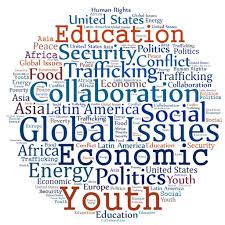Safeguarding Our Oceans: A Global Call for Marine Ecosystem Conservation
Our planet's oceans, encompassing over 70% of the Earth's surface, are fundamental to life as we know it. These vast bodies of water are biodiversity hotspots, crucial for regulating climate, and provide sustenance for billions. However, the escalating impact of human activities and environmental degradation poses a significant threat to their delicate balance. Understanding this threat and actively working towards solutions is paramount for the future of our planet.
Marine ecosystems offer invaluable services, supporting diverse industries like fishing, tourism, and shipping, generating millions of jobs globally. They also play a critical role in carbon sequestration, absorbing substantial amounts of atmospheric carbon dioxide and mitigating climate change. The economic and environmental benefits derived from healthy oceans are immeasurable; their protection is not merely an environmental concern but an economic imperative.
The health of our oceans faces a multitude of challenges. Overfishing depletes fish stocks, disrupting the delicate balance of marine food webs. Pollution, from plastic waste to chemical runoff, contaminates water and harms marine life. Habitat destruction, often driven by coastal development and unsustainable practices, eliminates vital breeding and feeding grounds. And finally, the looming shadow of climate change exacerbates these threats through ocean acidification, rising sea temperatures, and altered weather patterns.
Sustainable resource utilization is crucial for ensuring the long-term health of our oceans. This necessitates a shift towards responsible fishing practices, implementing strict regulations to prevent overfishing and protect vulnerable species. It also demands a commitment to reducing our reliance on single-use plastics, improving waste management systems, and promoting sustainable aquaculture practices that minimize environmental impact.
Protecting our marine environments requires comprehensive conservation strategies. The establishment of marine protected areas (MPAs) provides crucial sanctuaries for marine life to thrive and recover. Reducing pollution necessitates stringent regulations and the implementation of advanced waste treatment technologies. Addressing climate change, a major threat to ocean health, demands a global commitment to reducing greenhouse gas emissions through renewable energy transition and sustainable consumption patterns.
Achieving global sustainable development requires a concerted effort from governments, businesses, and individuals. This involves creating economic models that prioritize environmental sustainability, fostering collaborations to share best practices and technologies, and encouraging ethical and responsible consumption habits. It's a complex challenge demanding innovative solutions and international cooperation.
Numerous successful conservation initiatives worldwide demonstrate the positive impact of protecting marine ecosystems. The Great Barrier Reef Marine Park, for instance, serves as a prime example of effective management, with strict regulations contributing to improvements in the reef's health and resilience. These successes highlight the potential of targeted conservation efforts and the importance of learning from past achievements.
Global unity is paramount in ocean conservation. International collaboration is essential for sharing knowledge, coordinating efforts, and implementing effective strategies across borders. By working together, we can pool resources, establish shared standards, and achieve a global scale impact far exceeding the sum of individual national initiatives.
Individual actions, however small, collectively contribute significantly to ocean health. Reducing plastic consumption, choosing sustainable seafood, supporting ocean conservation organizations, and advocating for responsible environmental policies all play a vital role. Every individual choice contributes to the broader movement for ocean protection.
Inspiring action requires highlighting success stories and raising public awareness. Showcasing the incredible beauty and diversity of marine life can foster a sense of wonder and responsibility, inspiring individuals to become active participants in ocean conservation efforts. Effective communication is key to motivating a global movement for change.
Developing the necessary skills for promoting sustainable resource utilization and environmental conservation is essential for long-term impact. Educational initiatives, training programs, and volunteer opportunities provide avenues for individuals to gain the knowledge and skills needed to become effective advocates for ocean health. Investing in education is an investment in the future of our oceans.
Consider your own actions: What daily choices can you make to support ocean health? Which organizations are you inspired to support? Are there local initiatives in your community that you can contribute to? These questions are starting points for personal engagement in this global endeavor.
Share this message. Let's collectively amplify the call for ocean protection. By sharing this information, we broaden the reach of this vital message and build momentum for a worldwide movement dedicated to safeguarding our oceans for present and future generations.
The health of our oceans is inextricably linked to the well-being of our planet and its inhabitants. By embracing sustainable practices, fostering global collaboration, and inspiring individual action, we can secure a healthier future for our oceans and for ourselves. Join the movement. The time to act is now.





